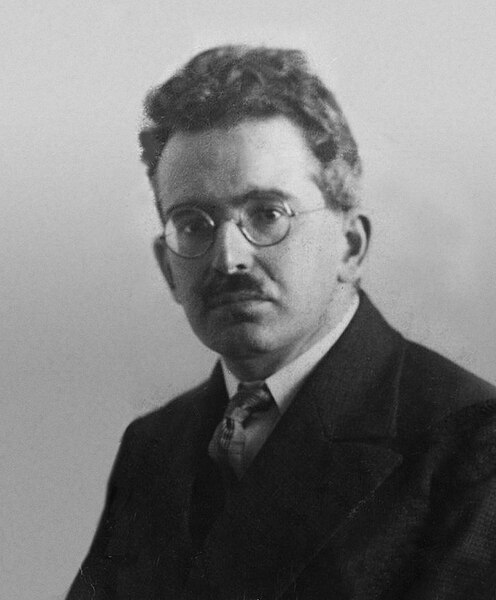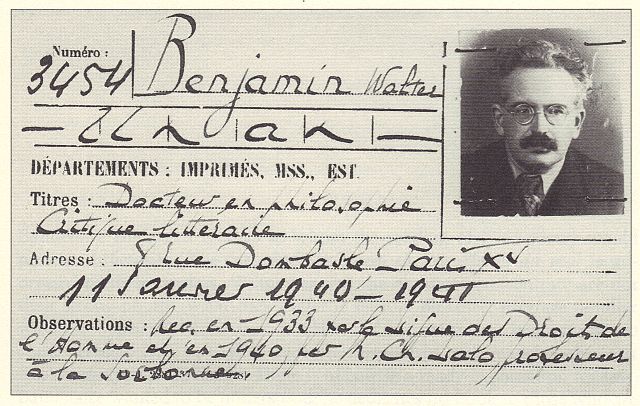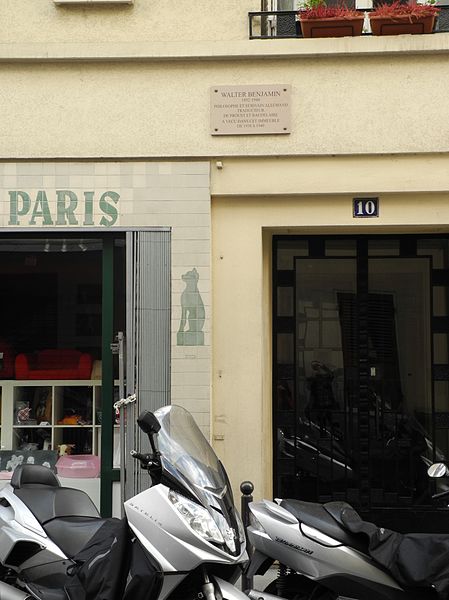Das Passagen-Werk or Arcades Project was an unfinished project of German philosopher and cultural critic Walter Benjamin, written between 1927 and his death in 1940. An enormous collection of writings on the city life of Paris in the 19th century, it was especially concerned with Paris' iron-and-glass covered "arcades".
View of an arcade (the passage Choiseul, located in the second arrondissement of Paris), as an example of the characteristic architecture of the covered arcades of 19th-century Paris.
Walter Bendix Schönflies Benjamin was a German Jewish philosopher, cultural critic, media theorist, and essayist. An eclectic thinker who combined elements of German idealism, Romanticism, Western Marxism, Jewish mysticism, and Neo-Kantianism, Benjamin made influential contributions to aesthetic theory, literary criticism, and historical materialism. He was associated with the Frankfurt School and also maintained formative friendships with thinkers such as playwright Bertolt Brecht and Kabbalah scholar Gershom Scholem. He was related to German political theorist and philosopher Hannah Arendt through her first marriage to Benjamin's cousin Günther Anders, though the friendship between Arendt and Benjamin outlasted her marriage to Anders. Both Arendt and Anders were students of Martin Heidegger, whom Benjamin considered a nemesis.
Benjamin in 1928
Walter Benjamin's membership card for the Bibliothèque nationale de France (1940)
Walter Benjamin's Paris apartment at 10 rue Dombasle (1938–1940)
Walter Benjamin's grave in Portbou. The epitaph in German, repeated in Catalan, quotes from Section 7 of "Theses on the Philosophy of History": "There is no document of culture which is not at the same time a document of barbarism"





